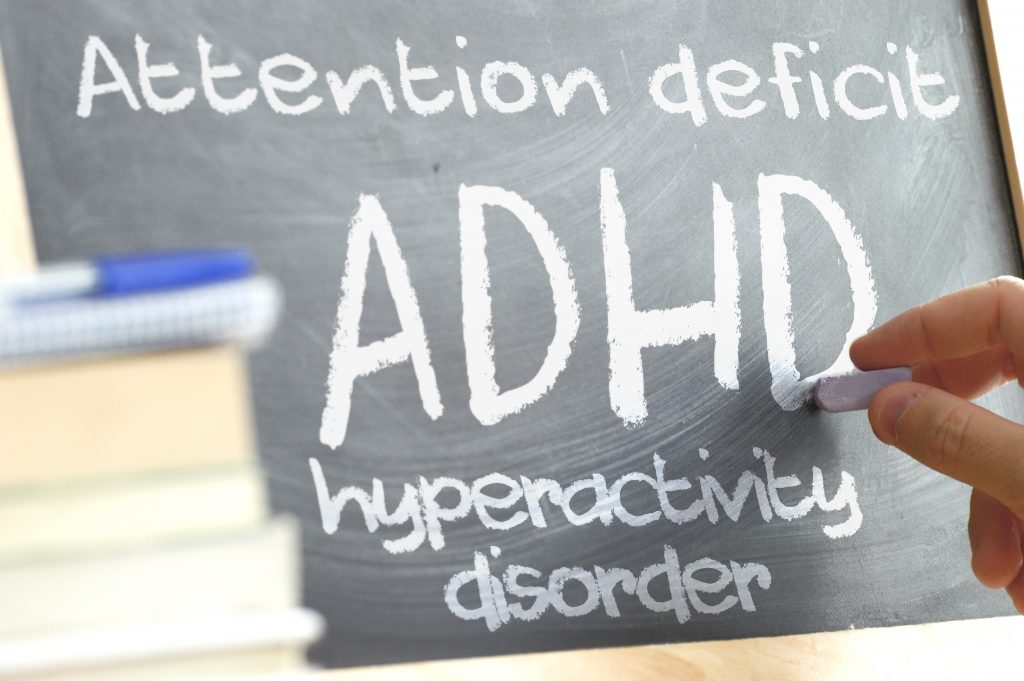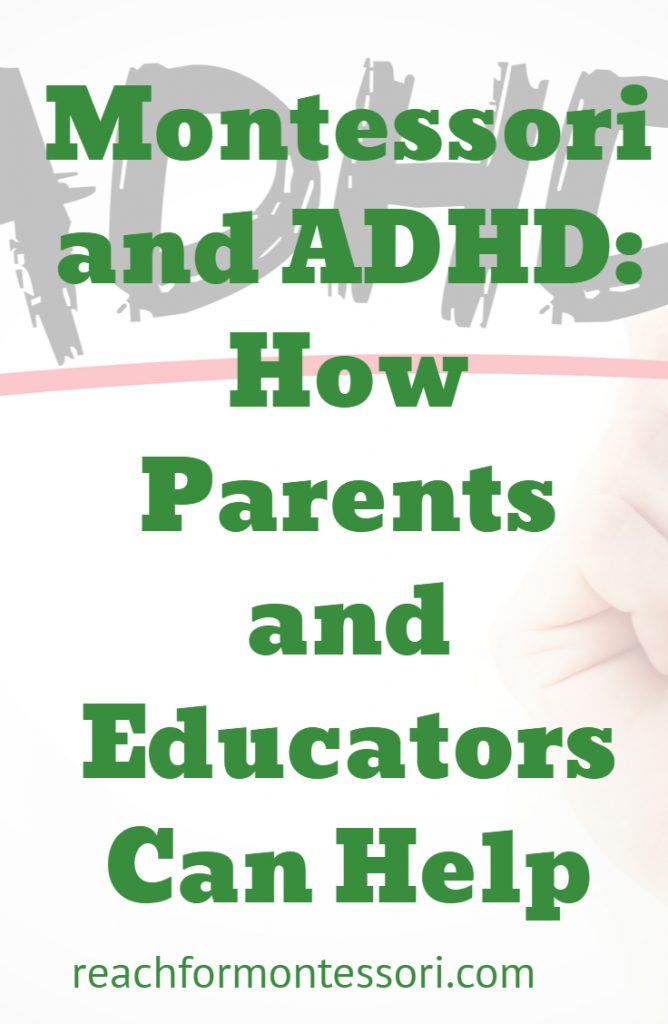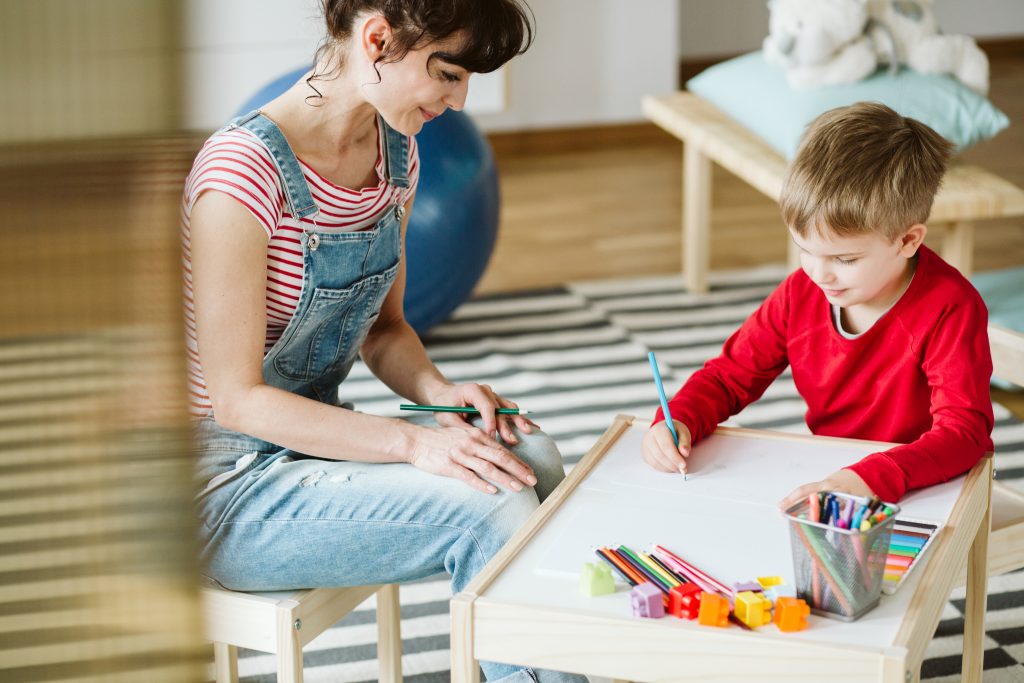Montessori and ADHD are sometimes described as two things that do not mesh. In my experience, as with any other child, the core of making it work is being prepared.
The prepared adult is something that goes hand in hand with the prepared environment, a staple in the Montessori world.
When we think about the ADHD child in a Montessori setting, either home or school, I believe we have to think in a more abstract version of being “prepared”.
I will use examples from our home, rather than school, though the same ideas apply. With my daughter, who is eight, the prepared environment is so much more than how my living room is set up.
We do our best as a family of very messy, arty, geeky people to keep our house in some form of order.
It's not always successful, but we know that when things have a place and structure exists, everyone is calmer and things are generally better.
Montessori and ADHD can be harmonious because the basic ideals of the philosophy are so beneficial to assisting kiddos who need a little extra support.

Anticipating the unknown with Montessori and ADHD
The other aspect of preparing our environment is ensuring that we are anticipating difficulties that may arise.
For my daughter, this is all about the relationship I have with her.
I have been with her for long enough that now I am able to anticipate where things may be tricky and ensure that I have done what I can to mitigate any difficulties.
That is what a prepared adult can do. Anticipate.
For instance, recently it was Father's Day here in Australia. It was also my Dad's 75th birthday.
In the past, we have picked up on a pattern when it comes to attending “special events” with our daughter.
Generally, she will become overwhelmed very quickly. There is a level of anxiety and confusion around “special days”, about what that means and how to act.
She can find the pressure of a celebration so intense that the day becomes very stressful for everyone involved.
It's not always about meltdown behavior, it can also look like ultra enthusiasm, which is all fine and good until someone is trying to open a present that's been given to them… without help.
So this year, I sat down and wrote a social story about Father's Day.
I outlined what to expect, what to do if she was overwhelmed, how long things would likely take, what would happen before and after, and so on.

By giving her the opportunity to see the unpredictable laid out before her, as well as offering her some escape plans if they were needed, the pressure was much less and the day continued fairly smoothly.
We've used them before, and like every other tool in the toolbox, it's not necessarily foolproof.
Also, it wouldn't traditionally be considered Montessori, but at the heart of it, it's knowing the child, their needs, and preparing the world around them to smooth the way.
It is not always possible to predict how children are going to react to things, the same way it is not always possible to know which Montessori materials and activities they will need, or where their learning will take them, in a standard Montessori classroom.
As such, in preparing for the social and emotional side of life, we cannot always be expected to know what will trigger frustration, anger, or fear in our children.
But we can try. Observation and experimentation are key in this.
Caveat!
A note here, to all parents and educators. It is ok that you are not psychic.
I have to admit that I have developed a hyper-awareness of my child and an almost eerie ability to predict what she might do in a given situation.
This has good sides and bad sides… fairly sure it's not always helpful to my relaxation levels, but when it comes to anticipating what she will need, or knowing when to step in before something happens, it's great.
The caveat to this is that none of us are mind readers, and sometimes, we miss some things. Sometimes we drop the ball. Sometimes, the ball hits us in the face.
That is ok.
So, did I know that my child would have a huge reaction to cardboard boxes being thrown away? Maybe?
Did I spot the chance to get in and mitigate the reaction before it happened? Not today…
But we're all still here and we've worked our way through those big emotions.
If you miss one, that's ok, because you have the tools and the skills to do the repair work and get everyone back to level ground.
Because you know the child.
Benefits of Montessori for ADHD
My daughter has a limited understanding at the moment of actions and consequences.
Therefore, it is my duty as her parent and guide to try and assist her in developing that.
We talk about good or kind actions all the time, and how they result in positive consequences. We talk about how not-so-good choices might lead to not-so-nice consequences.
It's a work in progress, but it's something that has to be explicitly taught and modeled for her.
Montessori is beneficial for ADHD because of its intrinsic understanding of a peace-based method of child-rearing.
There is no shame and punishment in Montessori. There are natural consequences, which is a hugely important lesson a child with ADHD may take a long time to understand.

So what about the ADHD child in a Montessori classroom?
In my experience, it has certainly posed its challenges. To me, the benefits of the system far outweigh the difficulties.
Montessori and ADHD work together because the environment is peaceful, the children can move freely and the expectations are very different.
When you compare the mainstream classroom, with desks in rows and all the children working on the same thing at the same time, it's easy to see why ADHD students might struggle.
On the other hand, as many people have reported, some students with ADHD might find the choice and independence of the Montessori classroom overwhelming and hard to handle.
To me, that doesn't mean they can't fit in or even thrive.
Potentially, they might need modifications to assist them, but in such a specialized, personalized philosophy of learning, that should be par for the course.
Educators and guides work to know what each child needs to work on, and provide their work.
The same should be said for the tools and assistance those children might need to complete their learning.
So really that's all it boils down to. Knowing the child. Knowing what is going to be a stumbling block and sometimes thinking creatively to ensure that things go as smoothly as they can.
Maybe that means having a swing ready for when your child is disappointed about something and needs to regulate their emotions.
Maybe it means having a neat and editable schedule to help everyone figure out what's happening. Maybe it's a checklist for the child to check off when they are working, making them secure, happy and independent all in one go!
If we are prepared to think outside the box, just like our wonderful neurodiverse children then we will work out ways to make it work for everyone!

What about parents with ADHD? I can’t find a single resource that helps parents who have ADHD implement ADHD at home with their children. Everything I’ve found is geared towards children with ADHD without a single mention of what to do if the parents have it. I want to use Montessori in my home with my children but some of the things I’ve read and seen seem more insurmountable to me as a parent than climbing Mt Everest.
@Hope,
Did you find anything? My son was recently diagnosed but taking the quiz and ive suspected it that I have it. It would be nice to find more resources.